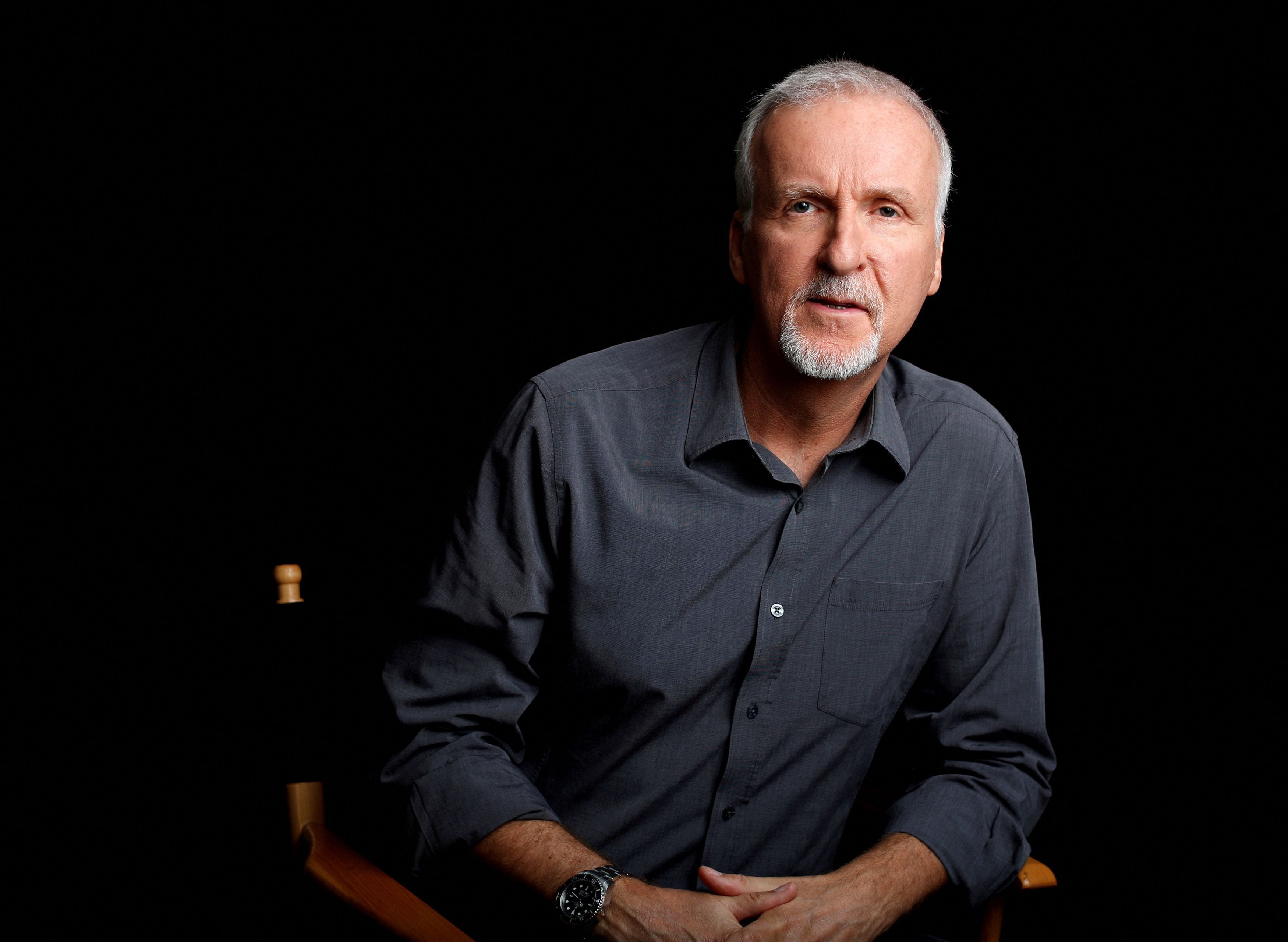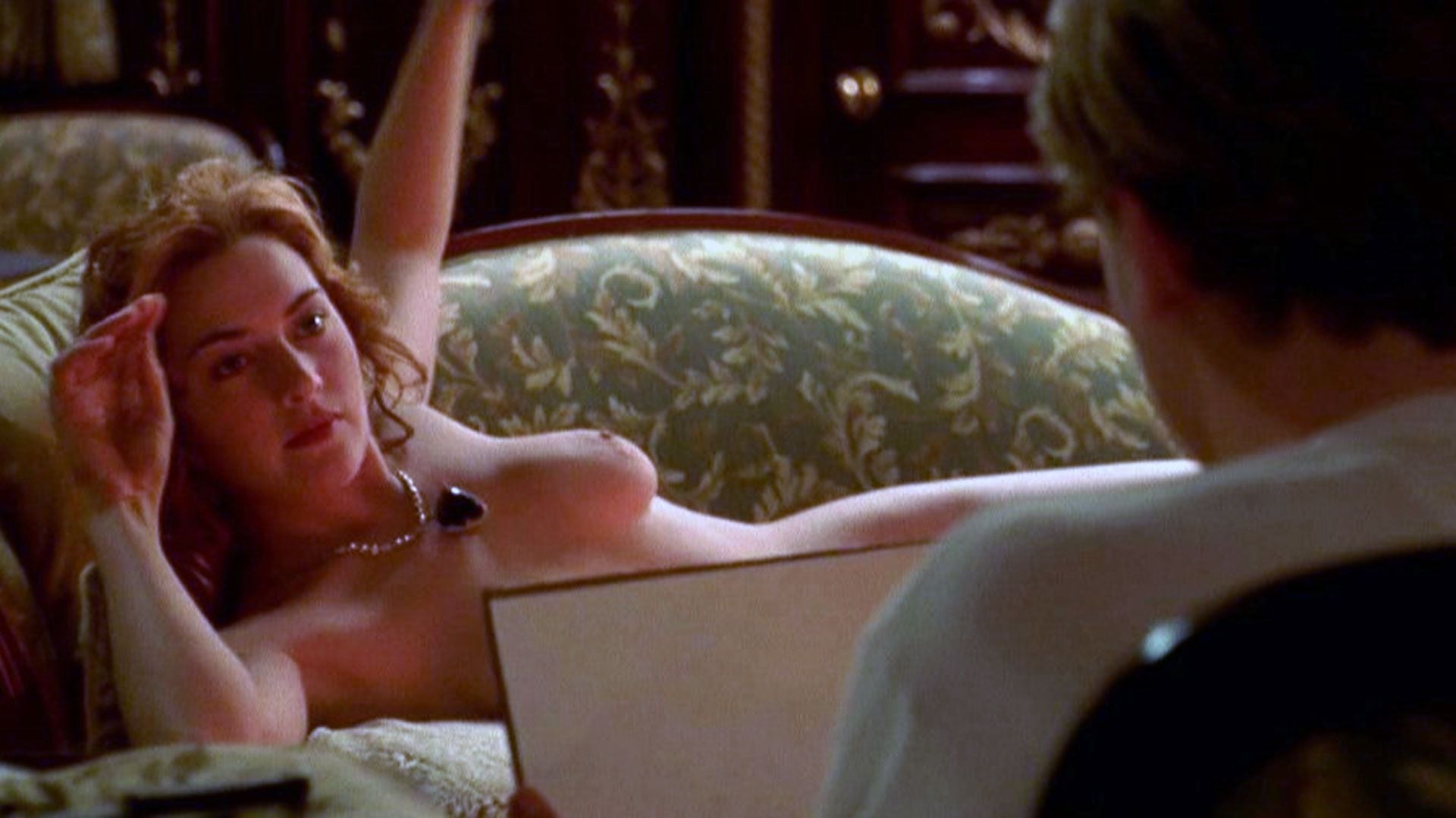
As soon as it was released, Titanic became an extraordinary success. It was the most watched film for four months and became the highest-grossing film in history until that time, then surpassed by James Cameron's Avatar and by the last installment of the Avengers. It raised about $2 billion. And, as a corollary to his critical and public triumph, he swept the annual awards ceremony.
On March 23, 1998, he equaled a record that seemed unattainable, that of Ben Hur: eleven Oscars after fourteen nominations. And the Academy didn't even nominate her in two important categories in which she surely deserved to be among the five: Leonardo DiCaprio as best actor (no one in the cast got a statuette that night) and the script.
However, in the previous years, in the long process of creation and production of the film, all indications suggested that a financial and artistic disaster would ensue. Many believed that James Cameron's megalomania would sink the project and the studies involved.
It all started with Cameron's obsession with shipwrecks. That world of the sea, failure, tragedy and sunken remains always attracted him. When he saw a documentary about an expedition to the remains of the Titanic, he knew that this would be his next project. He got the studio to finance underwater filming. For this, his brother, an aerospace engineer, designed a special camera that could dive very deep and withstand the pressure of water to travel through the vestiges of the true ocean liner.
He didn't want to make a catastrophe movie anymore. He wanted (he needed: his obsession did not allow him anything else) historical precision to tell an epic love story with disaster as a framework. The Titanic as a theme didn't seem too original or tempting. As some rival producer said to belittle the project: “Who might be interested? Everyone knows what happens: the indestructible ship is sinking. And they all die. Very boring.” However, Cameron's power of seduction and conviction got the go-ahead. At first he warned that it would be very expensive. He did the opposite of what everyone does, instead of hiding the size of his company, he announced that he would need $150 million. Although, after several negotiations, the first budget was closed at 109 million. In the end I would spend almost twice the original calculation.

The project belonged to 20th Century Fox. But it was very expensive and the risk was monumental. So they wanted to share it. They talked to Universal who wanted nothing to do with that potential disaster. Paramount agreed to become a partner but limited its contribution to anything less than 50 million dollars, with the other company having to put everything in excess of budget. Paramount secured distribution in the United States. The cost was one more concern that plagued managers. They saw that the film was going to be very long. More than three hours that directly attacked their commercial possibilities. Not only did the length mean that each room had fewer shows per day, but films that are too long chickened out viewers who are not willing to spend so much time in front of the screen.
Before writing the script, James Cameron was documented. He read everything he could about the Titanic. One of the walls of his office was covered with publications about the ship. He didn't want to leave any details unknown, he didn't care if it was noticed or not on screen. If he knew that something was wrong or that it was not properly checked, that became an obstacle that prevented him from continuing.
The executives wanted another lead couple. For the role of Rose, Gwylneth Paltrow, Claire Daines and Gabrielle Anwar, among others, attended the auditions. Kate Winslet wanted that character. And he fought for him. He wrote letters to Cameron: “Rose is me.” And he even sent her flowers and was angry when he found out that another actress had gone through the auditions. One more letter: “It's hard for me to understand that you're still hesitating and you haven't realized that you have your Rose here.” Kate's insistence made Cameron see that the actress would be willing to do whatever it takes (to endure everything necessary) to be a perfect Rose.
Tom Cruise wanted to do Jack but he wasn't even considered. The casting director approached the names of Chris O'Donnell, Billy Crudup and Stephen Dorff. Matthew McConaughey was the most likely to keep the role. He even did screenplay with Winslet. And they also tried it out for the role of her millionaire fiancé, the one that Billy Zane got. But he was left without either role.
For secondary school, Barbra Streissand was considered not accepted: it was little for her - and Robert De Niro as the captain, but at the last minute she gave up citing health issues.
The characters are schematic, it does not have great depth. They are there to demonstrate the difference in classes and for the protagonists to live a great love story. This scheme makes the performance of Leonardo DiCaprio, who at that time was 22 years old, more valuable. There's not much to get out of that hero in love who we know beforehand doomed to tragedy.
Rose's nude drawings (and the hand that appears making them) are by James Cameron. He drew his character himself. He asked Kate to pose in his underwear in front of him to make them. That was the first scene among the actors. The boat wasn't ready yet and the giant pool wasn't full either, so the director had to shoot all the possible scenes that didn't require the sea. He chose this one to make his actors uncomfortable, to break the ice. He rightly believed that since he did not know each other so much, not having entered into confidence, the scene would have a singular tension. DiCaprio's nerves were so great that he asked him to lie on the bed instead of on the couch as the script indicated. The stumbling block was so genuine that it remained in the final version.
The old Rose, the one of today, was Gloria Stuart. Cameron asked them to look for an actress who had shone in the 1930s but then disappeared. Stuart, at the time of filming, was 87 years old and had to be made up to look centenarian (it became curious that two different actresses Gloria Stuart and Winslet were nominated for an Oscar for making the same person in the same film). The old woman with the wisdom that years give responded to every excess of the director by calling him “Herr Direktor”.
The protagonists of the love story are fictional characters (although in the crew there was a young man named Jack Dawson who died in the shipwreck). But these are mixed with many other characters who were on the unfortunate journey. The historical accuracy that Cameron revealed was not achieved only with appropriate costumes or appropriate hairstyles and makeup. He hired a specialist in etiquette standards from the early 20th century who, in addition to writing a manual that guided the whole team, gave several talks during the shooting and supervised each scene so that there were no anachronisms or even microscopic ones.

But if we talk about adjusting to real events, the greatest feat was the life-size construction of the sunken ship. Cameron didn't want models or miniatures. I needed everything to look the way it had been. Only some parts (jars for example) were reduced by 10% of their original size. For some scenes like the one in the engine room, Cameron asked that they get him short extras, so everything looked even bigger.
The studio purchased coastal land in Baja California, Mexico to build the ship and the huge tank on which they would shoot the scenes. The entire operation meant 57 million dollars of investment. The depth of that tank was one meter so that all the actors could stand up and could stay as long as possible. Everyone who went through the set ended up, sooner rather than later, in the water, pushed by Cameron who always felt he needed more castaways in his sea. At some point desperate because they didn't do what he had asked for (or at least that's what he played), Cameron took a dozen extras by the flaps and stuffed them head first into the excessive tank. It only stopped when it reached the desired number of victims.
Outside, during breaks between scenes, swimming pools with hot water were waiting for them in which the actors tried to recover their temperature.
Icy water and prolonged immersion caused several diseases. From Kate Winslet's pneumonia to several kidney problems, beyond a few fractures of a couple of risk doubles. But the big medical emergency of filming came at a lunch when they were shooting scenes of the wreckage of the original ship at the bottom of the sea. At that meal the main course was a rich and somewhat exotic fish soup. Some felt strange taste but didn't say anything because they didn't know what the flavor of that broth should be. But soon after the problems began. Someone had poisoned the soup with a significant amount of P.C.P. (also known as Angel Dust), a strong and powerful hallucinogen that wreaked havoc on the technical team. As soon as he realized the situation, James Cameron ran to the bathroom to cause vomiting and alleviate the effects before the drug took effect. Filming should have stopped for a couple of days. It is not known if it was a bad joke, an accident or a revenge on Cameron's behavior.

- We've spent too much already. We have to cut scenes,” said one producer.
“If you want to cut something, you're going to have to throw me out,” replied Cameron.
- Don't put us in this position.
- And I warn you that in order to fire me, you're going to have to kill me.
The monstrous and extremely expensive machinery had long since been put into operation. Doubts inevitably appeared in the executives of the two studios involved. But the doubts were followed by panic. They became obsessed with failure. They couldn't see another ending to this story. But failure in this case meant the bankruptcy of studies, the end of artistic careers, dismissed executives and loss of an obscene amount of millions of dollars.
It often happens, there are multiple cases (Heaven's Gate, Waterworld, One from the Heart, the films of Orson Welles), that a film that goes out of budget, that is guessed grandiloquently, from which problems leak during filming, suffers a dismal failure. A priori, the excessive ambition of a director is often punished. And James Cameron was the ideal candidate for this to happen. Megalomaniac, excessive, despotic. And ambitious. That ambition is usually paid dearly. Critics and industry don't like him and the punishment is the stoning of the work, almost without giving it a chance. They make them pay for that arrogance at some point. They show him that the omnipotence they think they display is just a sensation.
Moreover, in this case the analogy was too easy, it was within reach. Everyone knew that the first setback was going to be equated with the sinking of the two giants, of the two Titanics: the ship and the film. They were waiting for the film to fail to talk about shipwreck, it was a race to see who was the first to be obvious.
The tyrannical handling of James Cameron's set is well known. Always tense, on the verge of mistreatment (in his most serene days), the director doesn't usually take care of his unkind ways. He, he says, seeks concrete results and to achieve something one needs pain, to go through pain. That's his work ethic. As a counterpart, it cannot be said that he himself did not subject him to the same conditions. The working days were very long. There are extraordinary photos showing him inside the tank, covered up to his shoulders by water, concentrating on the explanation of the summit scene to DiCaprio and Winslet who listen carefully and somewhat terrified by the cold.

Cameron's original idea was to have Enya's instrumental music, but there was no agreement. The one hired was finally James Horner. The order he received was the same. Only instrumental music. So in order not to provoke Cameron's fury, the letter of the song with lyrics he had written was kept until the end. When the director listened to My Heart Will Go On, he knew that he had to change his decision. (Another detail: Celine Dion initially rejected the topic, she didn't like it; it was her husband who convinced her).
Like everything related to Titanic, music was also an extraordinary success. The song sung by Celine Dion became the best-selling single in history and the soundtrack won 11 platinum albums in the United States alone after sell 11 million copies.
The premiere scheduled for mid-1997, to take advantage of the North American holiday, the high film season, had to be postponed. Once again the catastrophic prophecies were installed. The director explained that it was a delay due to the complex special effects. There were already figures: the film was going to come out more than 200 million dollars; at updated values it was already more expensive than the same boat on which it was inspired. The study asked Cameron to reassure specialist journalists to give some interviews. He reluctantly accepted.
It was so that in the middle of the editing and when rumors about Titanic were getting worse and the bad omens growing, Cameron received a journalist in the editing room. While they were talking, he showed him a scene. It lasted just over a minute. When he finished, the director said to him: “I hope you took a good look at it. Because you were the last one to do it.” And at that moment he erased the scene forever. “I just threw a million dollars away,” he told the reporter, Olympian.
But on December 19 of that year, Titanic hit theaters. The speculations ended at that time. The film became an immediate success, one that exceeded his uncontrolled ambition.
James Cameron had managed to create a new modern classic.
KEEP READING:
Últimas Noticias
Debanhi Escobar: they secured the motel where she was found lifeless in a cistern
Members of the Specialized Prosecutor's Office in Nuevo León secured the Nueva Castilla Motel as part of the investigations into the case

The oldest person in the world died at the age of 119
Kane Tanaka lived in Japan. She was born six months earlier than George Orwell, the same year that the Wright brothers first flew, and Marie Curie became the first woman to win a Nobel Prize

Macabre find in CDMX: they left a body bagged and tied in a taxi
The body was left in the back seats of the car. It was covered with black bags and tied with industrial tape
The eagles of America will face Manchester City in a duel of legends. Here are the details
The top Mexican football champion will play a match with Pep Guardiola's squad in the Lone Star Cup

Why is it good to bring dogs out to know the world when they are puppies
A so-called protection against the spread of diseases threatens the integral development of dogs




